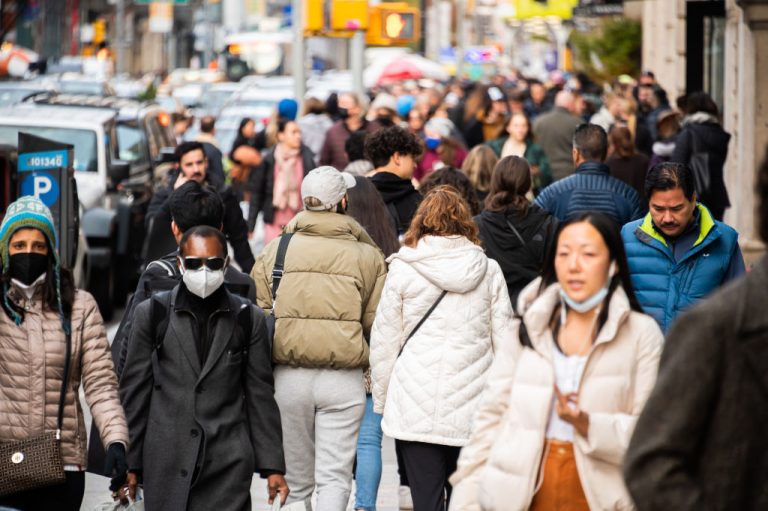Previous SARS-CoV-2 infection is highly protective against reinfection with the COVID-19 (Coronavirus Disease 2019) Delta variant, according to a new study published on Dec. 3, 2021 in the Clinical Infectious Diseases journal by researchers at Cleveland Clinic in Ohio.
The authors conducted a retrospective cohort study on 325,157 patients who were tested for COVID between March 9 to Dec. 31, 2020, and studied 152,656 patients who were tested from March 9 to Aug. 30, 2020, with follow-up testing through Sept. 9, 2021. The primary outcome researchers looked for in the study was reinfection, defined as a “positive PCR test >90 days after initial positive test.”
Natural immunity at 13 months with ‘no evidence of waning protection’
The Delta variant, first reported in India in Dec. 2020, accounted for 93.7 percent of sequenced viruses in the United States by July 24, 2021. With regard to prior infection, the authors cite multiple studies in the U.S., UK, and Denmark that “describe approximately 85% reduced risk of reinfection for 5-7 months,” but provide limited data about the “duration of immunity beyond this period.”
On the other hand, they noted that “recent findings suggest vaccine-induced immunological responses (e.g. neutralizing antibodies) wane after 6 months.”
The duration of protection afforded by natural immunity is important, as it helps to inform policymakers in the U.S. and around the world who are still pushing for vaccine mandates without acknowledging existing protection from previous infection. In fact, according to the Centers for Disease Control and Prevention (CDC), as of Nov. 16, 2021, there have been an estimated 146.6 million total infections in the US.
Success
You are now signed up for our newsletter
Success
Check your email to complete sign up
FURTHER READING:
- Without Natural Immunity, Omicron Reduces Pfizer Jab Efficacy 41 Fold: Study
- Immunity From COVID’s Experimental Gene Therapy Vaccines Lasts About as Long as Flu Shot: WSJ
The number of infections, broken down by age for 0 to 17 years, 18 to 49 years, 50 to 64 years, and greater than 65 years, were 25.8 million, 75.2 million, 27.4 million, and 18 million Americans respectively. As such, the implications of natural immunity studies apply to nearly half of all Americans.
The Cleveland Clinic researchers found that the “overall protection of prior infection against reinfection during the period of Delta dominance was 85.4%.” Interestingly, when comparing protection for patients aged 65 or older and ages 0 to 64 years old, the elderly had a higher rate of reinfection with 87.9 compared to 75.1 percent, although the result was not statistically significant (p=0.06).
Based on long-term effectiveness analyses conducted on 153,656 individuals, the authors reported protection against reinfection of 85.7 percent, with 92.0 percent protection against symptomatic infection compared to 52.2 percent for asymptomatic infection.
Additionally, after the data showed in the “first 5 months, protection against reinfection exceeded 90% for up to 13 months from initial infection,” the team found “no evidence of waning protection for up to 13 months.”
The study results affirm previous in vitro studies, or studies conducted in laboratories, demonstrating “the persistence of antibodies with neutralizing activity for at least 12 months.”
Limitations of the study include lack of access to testing outside of the Cleveland Clinic Health System, lack of reporting by infected patients who did not get tested, and the inability to “distinguish between missing data and zero vaccine doses.”
Interestingly, the findings “also suggest that some countries may approach herd immunity against future variants due to the protection offered by the combination of previous SARS-CoV-2 infections and COVID-19 vaccinations.”
“Given the many additional cases of COVID-19 in 2021, the U.S. may be approaching herd immunity.”
The authors conclude, “SARS-CoV-2 infection is highly protective against reinfection with the Delta variant. Immunity from prior infection lasts for at least 13 months. Countries facing vaccine shortages should consider delaying vaccinations for previously infected patients to increase access.”
The study notes that natural immunity is not acknowledged in the U.S., which they point out “stands in contrast to the policies of several other countries, which acknowledge the immunity provided by prior COVID-19 infection,” including Israel, the European Union, and the UK.
















